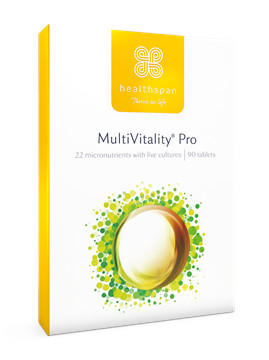Multivitamins benefits: Why you might need a supplement… www.healthspan.co.uk/advice/multivitamins-benefits-why-you-might-need-a-supplement

Diet should always come first, but some still miss out on important vitamins or minerals due to their dietary requirements or lifestyle. Here Dr. Sarah Brewer explains how nutrients can help.
While diet should always come first, many people miss out on key nutrients because they are cutting back to lose weight, skip meals due to time pressures, or avoid certain items because of intolerances or ethical, religious or health reasons. Also, over the age of 50 the ability to absorb certain nutrients decreases.
Did you know?
Less than a third of adults (31%) meet the 5-a-day recommendation for fruit and veg, while the average consumption of oily fish is just 64g per week – less than half the recommended 140g.1 Many people eat no oily fish at all.
Are you missing key nutrients?
The National Diet and Nutrition Surveys (NDNS) in the UK highlight that significant numbers of people do not get all the vitamins and minerals they need from their food. Deficiencies are common for selenium (lack of which can lead to reduced immunity), iron (leading to anaemia), magnesium (which can cause fatigue and constipation) and calcium (affecting bone strength).2 Low vitamin D levels are especially concerning, with 17% of adults having low vitamin D status over the whole year, not just during the winter months – a figure that is likely to worsen as a result of isolating during the current pandemic.
In a significant number of cases, vitamin and mineral intakes are so low they don’t even meet the Lower Reference Nutrient Intake (LRNI) which is needed to prevent deficiency diseases such as iron-deficiency anaemia…
www.healthspan.co.uk/advice/multivitamins-benefits-why-you-might-need-a-supplement













